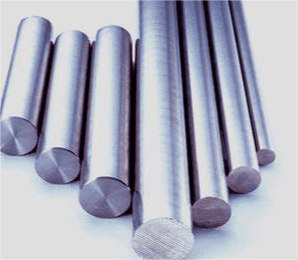Introduction

In the world of construction, where structures are subjected to immense forces and extreme conditions, the strength and durability of materials are paramount. Alloy forgings have emerged as the material of choice for many critical components in construction projects, offering a unique blend of strength, toughness, and versatility that sets them apart from traditional metals.
What are Alloy Forgings?
Alloy forgings are created through a process called forging, where a heated piece of metal, typically an alloy, is subjected to controlled pressure and deformation, shaping it into the desired form. This process not only imparts the desired shape but also refines the metal’s microstructure, enhancing its mechanical properties.
Advantages of Alloy Forgings in Construction
The use of alloy forgings in construction offers several compelling advantages:
Superior Strength: Alloy forgings exhibit exceptional tensile strength, yield strength, and fatigue resistance, making them ideal for load-bearing components and applications that demand high performance.
Enhanced Toughness: Alloy forgings possess remarkable toughness, the ability to absorb and withstand impact energy without fracturing. This quality is crucial for construction components that face impact loads or operate in harsh environments.
Design Versatility: Alloy forgings can be precisely shaped into complex geometries, catering to the intricate designs and specific requirements of various construction applications.
Dimensional Accuracy: Alloy forgings are renowned for their dimensional precision and consistency, ensuring a perfect fit and optimal performance in critical components.
Cost-Effectiveness: Despite their superior qualities, alloy forgings can be surprisingly cost-effective, especially when considering their long lifespan and reduced maintenance needs.
Applications of Alloy Forgings in Construction
The versatility of alloy forgings extends to a wide range of construction applications, including:
Crane Components: Alloy forgings are extensively used in crane components, such as hooks, shackles, and lifting beams, due to their exceptional strength and durability.
Excavator Parts: Alloy forgings play a vital role in excavator parts, including buckets, booms, and sticks, where their strength and toughness are essential for digging and maneuvering heavy loads.
Structural Components: Alloy forgings are employed in structural components, such as beams, columns, and supports, providing the necessary strength to withstand the weight and stresses of buildings and bridges.
Pressure Vessels: Alloy forgings are utilized in pressure vessels, such as tanks and reactors, ensuring safety and reliability under high pressure and temperature conditions.
Offshore Structures: Alloy forgings are indispensable in offshore structures, such as platforms and rigs, where their resistance to corrosion and fatigue is crucial for long-term performance in harsh marine environments.
Table: Comparison of Alloy Forgings with Other Materials

| Property | Alloy Forgings | Cast Iron | Cast Steel | Rolled Steel |
|---|---|---|---|---|
| Tensile Strength | High | Moderate | High | Moderate |
| Yield Strength | High | Moderate | High | Moderate |
| Toughness | High | Low | Moderate | Low |
| Fatigue Resistance | High | Low | Moderate | Low |
| Design Versatility | High | Low | Moderate | Low |
| Dimensional Accuracy | High | Moderate | Moderate | Moderate |
| Cost | Moderate | Low | Moderate | Low |
Conclusion
Alloy forgings have revolutionized the construction industry, providing a reliable and versatile solution for critical components that demand exceptional strength, toughness, and durability. Their ability to withstand the rigors of construction projects and maintain their integrity over time makes them a valuable investment in the long-term performance and safety of structures. As construction methods and technologies continue to evolve, alloy forgings will undoubtedly remain at the forefront, ensuring the structural integrity and resilience of the buildings and infrastructure that shape our world.
FAQ
Q: What are some common alloys used for forgings in construction?
A: Common alloys used for forgings in construction include:
- Carbon steel: A versatile and cost-effective option for general construction applications.
- Low-alloy steel: Offers enhanced strength and toughness for more demanding applications.
- High-alloy steel: Provides exceptional strength, corrosion resistance, and heat resistance for specialized applications.
Q: How are alloy forgings inspected to ensure quality?
A: Alloy forgings undergo rigorous inspection procedures, including visual inspection, ultrasonic testing, and magnetic particle testing, to guarantee their integrity and adherence to stringent quality standards.
Q: What factors should be considered when selecting an alloy forging for a construction application?
A: Key factors to consider include the specific application’s requirements, such as load-bearing capacity, impact resistance, corrosion resistance, and operating temperature, to ensure the selected alloy forging possesses the necessary properties.
Q: Are alloy forgings more expensive than other metalworking techniques?
A: While alloy forgings may have a higher initial production cost compared to casting or machining, they offer long-term cost savings due to their superior durability, reduced material waste, and lower maintenance requirements. The enhanced performance and longevity of forged components can offset the higher upfront investment.
Q: What types of construction projects benefit most from alloy forgings?
A: Alloy forgings are particularly beneficial for large-scale and critical construction projects such as bridges, skyscrapers, and infrastructure developments. Their high strength, load-bearing capacity, and resistance to environmental stresses make them ideal for applications where safety and reliability are paramount. Additionally, projects requiring heavy-duty machinery and equipment can significantly benefit from the use of forged alloy parts.
